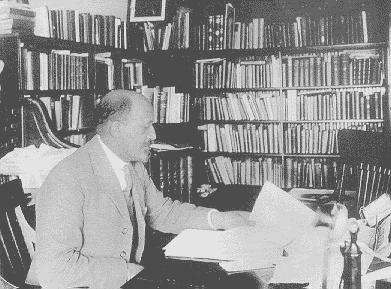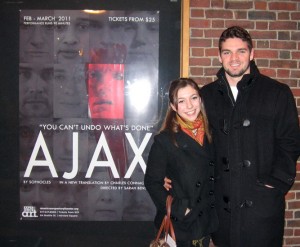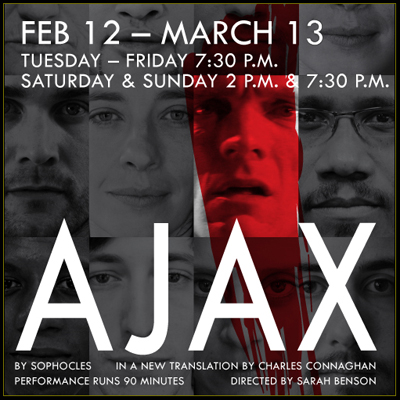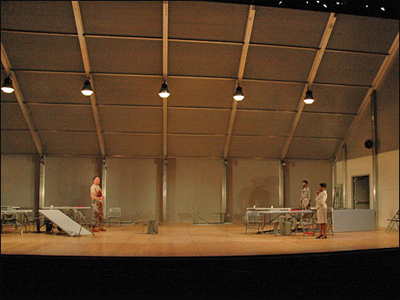February 15, 2011 at 5:45 pm
The Core Journal is now accepting submissions from current students and alumni, to be published in print this May. We’ll consider all kinds of content, including:
- class assignments
- interviews with Core authors, faculty, and lecturers
- creative non-fiction, and expository and personal essays
- research articles from the Natural and Social Sciences courses
- original poetry and fiction (does not necessarily need to be Core-related)
- imagined dialogues between characters from Core texts
- book reviews
- photography and drawing
- translations of excerpts from the Core texts in their original languages: German, Spanish, Sanskrit, French, Hebrew, Italian, Russian, Greek, Latin, Arabic, etc.
Submissions should be sent to corejournal@gmail.com. We encourage you to submit your work for consideration; publication in the Journal is a way to add another kind of experience to your resume, and is satisfying in its own right.
With thanks,
Jennifer Zimmerman, CAS ’13
Editor, The Journal of the Core Curriculum No. 20
By CAS Core Curriculum
|
Posted in Announcements
|
Tagged Core Journal, publication
|
February 15, 2011 at 5:22 pm
Starting today, students can log-on to the Link to see course listings for the coming fall semester. If you use this information to start planning ahead for Fall 2011, and you have any questions, don't hesitate to ask your discussion leader or to contact Core Program Administrator Liberty Davis.
By CAS Core Curriculum
|
Posted in Announcements
|
Tagged courses, registration
|
February 15, 2011 at 3:52 pm

A reminder: The Spring Career Expo will take place tomorrow, Wednesday, February 16, 12-3:30pm in Metcalf Hall in the George Sherman Union. Here you can meet recruiters to help you find internships and jobs.It is open to BU undergrads, graduate students, as well as alumni. Don't forget to dress professionally and bring your resume! Sponsored by the BU Office for Career Development.
By CAS Core Curriculum
|
Posted in Activities
|
Tagged careers, jobs, professional development
|
February 15, 2011 at 2:14 pm
 Following the tradition started last year, the Core Curriculum is proud to continue in the effort to raise awareness of the value of biodiversity, and how we can positively and negatively affect it. Professor Daniel Hudon provides context for this year's events on the Ecolympics blog:
Following the tradition started last year, the Core Curriculum is proud to continue in the effort to raise awareness of the value of biodiversity, and how we can positively and negatively affect it. Professor Daniel Hudon provides context for this year's events on the Ecolympics blog:
This year is the International Year of Forests and Yann Arthus-Bertrand, who directed the compelling eco-documentary Home (and put it online, gratis) has prepared a visually stunning short film to summarize the importance of forests. Here, also, is a collection of some endangered forests around the world, from which the above photos are taken.
We're now in the planning stages for this year's Ecolympics. Along with our main Ecolympics activities, we're aiming to again feature vegetarian cooking classes and film nights as well as some new events like hosting sustainability seminars, going on local hikes and possibly tree planting. If you're at BU and want to get involved, do get in touch. If you're beyond BU and want to get involved, also get in touch! We want to make a bigger, longer-lasting impact this year and we can do that with your help.
Every participant is guaranteed cookies and warm-fuzzy feelings for helping the environment (though cookies may be cut for budget purposes). Questions regarding the Ecolympics should be sent to Professor Hudon.
By CAS Core Curriculum
|
Posted in Announcements, Events
|
Tagged Biodiversity, CC106, ecology, Ecolympics
|
February 15, 2011 at 12:55 pm

On Friday, February 11th, a crew of Core congregants convened on Boston Common with a few of the faculty, for an evening of frivolity and physical fitness: skating on that iciest of seasonal attractions, the Frog Pond rink. Cocoa was had, our sources report. Happiness levels were uniformly elevated in all participants. Photo courtesy Prof. Kyna Hamill.
By CAS Core Curriculum
|
Posted in Activities, Core in the City
|
Tagged Core in the City, fun, photo
|
February 15, 2011 at 12:40 pm
American Interest Online offers a book review with commentary on How to Live: A Life of Montaigne in One Question and Twenty Attempts at an Answer by Sarah Bakewell. The review offers first insight into the peculiarities of Montaigne's approach to his writings, and then on happiness itself, providing humanities scholars a cohesive argument on how their indulgence with the arts can lead to a fulfilling and happy life even in politically tumultuous times:
That more or less sums up his approach. In the three volumes of Essais which he wrote and rewrote between about 1572, when he was not quite forty, and his death twenty years later, he tackled subjects as diverse as death, friendship, cruelty, names, smells, coaches, thumbs and, of course, cannibalism. The matter of these essays—he intended the term in the sense of attempts or exercises, and may be said more or less to have invented the genre as he wrote some several decades before Francis Bacon—is often remote from the titles he gave them. In almost all of them he ranges far and wide from his starting point, digressing at will, often ending up in the most surprising places. The essay “Of Vanity”, for example, takes on household management and domestic building works, astrology, the pleasures and hazards of travel and the disadvantages of umbrellas. An essay “Upon Some Verses of Virgil” starts with musings on old age and considers the place of women in the world, but turns out to be mostly about sex. “I ramble indiscreetly and tumultuously”, Montaigne wrote, “my stile and my wit wander at the same rate.” Throughout he manages, not entirely without art, to give the impression of being ready to commit to paper his every thought as it occurs to him, however trivial, undignified or confused it may be, as if he wants to capture the very process of thinking itself.
...
It’s a trick that Montaigne pulled off, again and again. The happiness he pursued was not the personal pleasure of utilitarian thought, let alone the “quick boosts” and easy (if esoteric) gratifications of modern self-help. His goal, as Bakewell reminds us, was the eudaimonia of Greek philosophy, an altogether fuller conception of human flourishing and joy. And he attained it by not seeking it. He focused, to borrow Minogue’s phrase, not on happiness itself but on concrete particulars, bringing to their contemplation what Bakewell describes as another “little trick” taken from the Greeks: ataraxia, which might be rendered equanimity or imperturbability. The result could be described in Montaigne’s case as a productively detached kind of engagement with life.
Are there really any lessons for us here? Montaigne would have said not. “Je n’enseigne point”, he wrote. “Je raconte.” He himself succeeded in carrying his thinking, his pursuit of happiness, over into the public sphere in ways that might be difficult to translate into 21st-century Western society.
Read the full post here. Is this the ultimate lesson Montaigne teaches us, that by his example happiness is found best when not sought? Feel free to leave your thoughts below or on the EnCore Facebook page.
By CAS Core Curriculum
|
Posted in Other Publications
|
Tagged American Interest, CC201, happiness, Montaigne
|
February 15, 2011 at 10:47 am
Sexual initiation! Not to be mentioned in our house! . . . I hunted in books, but wore myself out without finding the road. . . . For my schoolteacher the question did not seem to exist. . . . A book finally showed me the truth, and my overexcitement disappeared; but I was most unhappy, and it took me a long time to understand that eroticism and sexuality alone constitute real love.
-- French existentialist philosopher Simone de Beauvoir, from The Second Sex: Woman's Life Today (pg. 302), a book being studied this spring in the second-semester Core Social Sciences, CC204: Inequality. Prof. Maureen Sullivan will deliver a lecture addressing empirical evidences for gender inequality in the United States, on Thursday February 17.
By CAS Core Curriculum
|
Posted in Analects
|
Tagged Analects, CC204, De Beauvoir, gender, philosophy, quote, sexuality
|
February 15, 2011 at 9:20 am
Prof. Thornton Lockwood writes...

Du Bois at work in the office of The Crisis, c. 1915. Image from http://northbysouth.kenyon.edu.
In my CC204 lecture on race earlier this month, I raised the issue of the Historian’s fallacy, post hoc, ergo propter hoc (Latin for “after this, therefore because of this”), which consists in attributing a causal sequence between two events based on the fact that one event follows another. My lecture focused on the structural effects of American slavery, and when one reads Du Bois’ description of African Americans in 1880’s Georgia, in his essay “Of the Quest of the Golden Fleece,” there is no question that the debt peonage and fragile nature of former slave families he describes is the direct legacy of slavery. But are there social scientific phenomena today that can be traced to the slavery that existed in the United States 150 years ago? To probe that question, I had students look at a map of the 1860 federal census, which identified the per county percentage of slaves in the former Confederacy.
Next, I had students consider the incidence of obesity in the United States, which the Center for Disease Control chronicles by individual county. Although the two maps are not a perfect match, and there have been major demographic changes in American since the 1860’s—most importantly, the “Great Migrations” of African Americans from the Cotton Belt south to northern, Midwestern, and western urban centers in the 20th century—nonetheless, there is a whole host of social ills such as obesity, diabetes, illiteracy, domestic violence, and decreased life-expectancy whose distribution echoes demographic patterns found in the 1860 census. Causation, direct or indirect, or simple correlation? I’ll save discussion of those frequently misunderstood issues, for a future blog post.
*
NB: In view of the sesquicentenial of the American Civil War, The New York Times is running a blog entitled Disunion, which counts down the weekly events that happened in the U.S. 150 years ago today. It features Times columnists and major historians, and I strongly recommend it—including the blog entry which discusses the significance of the 1860 census map.
By CAS Core Curriculum
|
Posted in Great Questions
|
Tagged CC204, demographics, Du Bois, history, Inequality, race, statistics, war
|
February 14, 2011 at 4:31 pm

Zane Swanson (CAS '14) and his guest, outside the A.R.T. during the Core trip to Ajax on February 12, 2011
Prof. David Roochnik, Core seminar leader, lecturer, and professor in the Department of Philosophy, wrote in to the Core blog to share this thoughts about the production of Ajax Core students and faculty attended this weekend.
Interesting production. Brilliant idea to use the video screens for the chorus. But the disconnected speeches they uttered were, in my mind, a failure. No real momentum could be generated from it. Production suggested to me that as interesting as AJAX is it is not, in the final analysis, a great piece of drama. The second half, while intellectually connected to the first, doesn't follow from it organically, dramatically. Still, a great experience.
Sophocles’ play Ajax is read in the first semester of the Core freshman Humanities, CC101: The Ancient World. A longer response to the A.R.T. play, by Prof. Steve Esposito, appeared earlier on the Core Blog.
By CAS Core Curriculum
|
Posted in Core Authors, Core in the City, Events
|
Tagged Ajax, CC101, Core in the City, faculty, Sophocles, theater
|
February 14, 2011 at 4:18 pm

Professor Steve Esposito, a longtime member of the Core Humanities faculty and associate professor and director of undergraduate studies in the Department of Classics, writes about a recent Core excursion to a new theatrical version of Ajax…
This weekend, 85 Core students and 10 members of the Core faculty attended the very successful production of Sophocles’ Ajax at the American Repertory Theater in Harvard Square, directed by Obie-award winner Sarah Benson. It was great to see a play which we had read in CC101 brought so vividly to life. The staging, costuming, and acting were generally excellent and the pacing of the script was swift and strong. For those still interested in seeing the play, it runs until March 13.
The action never flagged, not least because of the fine performance by the buff actor playing Ajax, Brent Harris, who brought forth superbly the emotional logic and poignant tragedy of the gigantic hero’s dilemma. An aspect of the play that came through with particular power for me was the way the war-captive wife Tecmessa (played by Linda Powell, daughter of former Secretary of State Colin Powell) physically touched Ajax as she begged him not to take his life. The rendering of Ajax’s suicide was powerful, though, as the play’s climactic moment, I wish it had been enacted at center stage rather than far off to the side.
One of this production’s most memorable scenes occurred when the trio of Teucer (Ajax’s half-brother), Tecmessa, and her young son Eurysaces hovered lovingly over the enormous bloodied corpse of Ajax, creating a sacred protective space around it. Their vigil was a reminder of the terrible costs of war—especially those borne by women and children—and of the unforgiving warrior code that war inculcates.
Finally, a word on the costuming. Seeing the actors in U.S. military garb and gear was a sorrowful reminder that too many young American men and women now replay the role of Ajax today in Iraq and Afghanistan. Like Ajax, they fight to kill, but why they must continue, after ten wearying years, to journey across the world to these far-flung killing fields remains tragically unclear. Sadly, too, like Ajax, these young men and women commit suicide with alarming frequency as the meaningless of their killing puts to flight the higher angels in their tender hearts.
Attending last night’s production made me even more eager to see the upcoming performances of Ajax and Philoctetes by the group Theater of War, on February 28 and March 7, also at the A.R.T.; both shows are at 7 PM. These two evenings will serve as catalysts for town hall-type discussions about the challenges faced by members of the U.S. armed forces, veterans, and their families and caregivers. Tickets are free, but reservations are required and can be obtained by calling the Box Office at 617-547-8300 or by reserving them online.

Cast members Brent Harris, Kaaron Briscoe and Ron Cephas Jones in rehearsal. photo by Kati Mitchell for Playbill.com.
Sophocles' play Ajax is read in the first semester of the Core freshman Humanities, CC101: The Ancient World. Sarah Benson visited campus earlier this year, to give a talk sponsored by the Core; a profile of the director appeared last week in the Boston Metro. The A.R.T. website hosts videos featuring Benson and Ajax actor Brent Harris.
By CAS Core Curriculum
|
Posted in Core Authors, Events
|
Tagged CC102, military, Sophocles, Suicide, theater, violence, war
|







